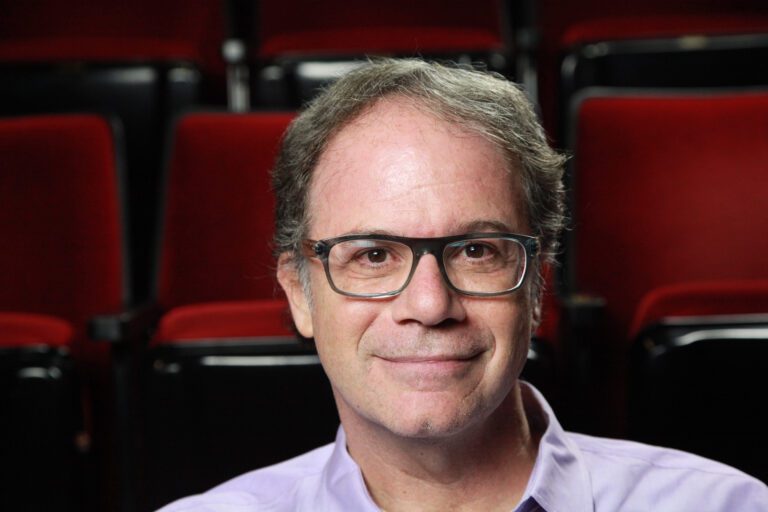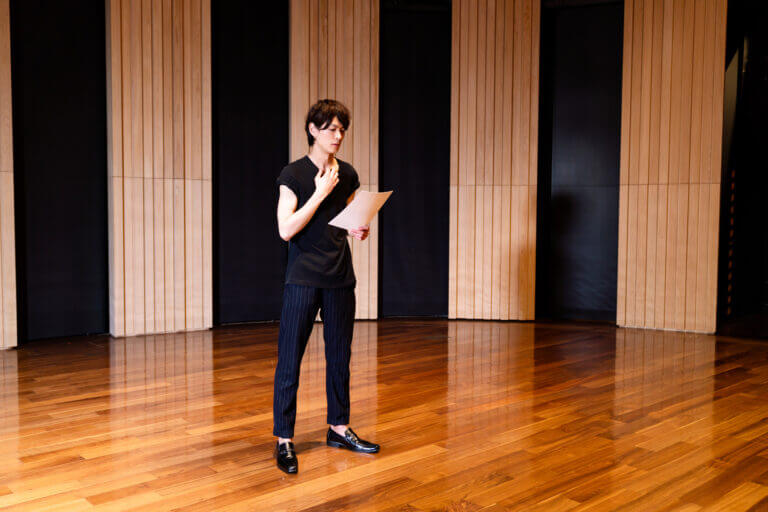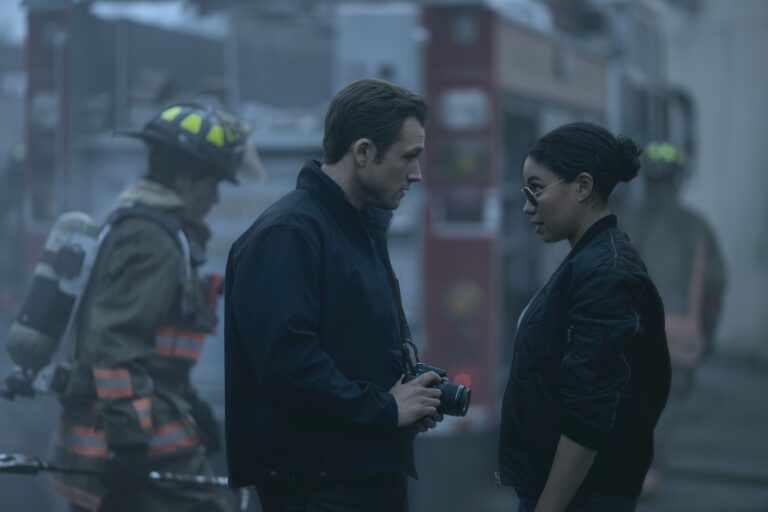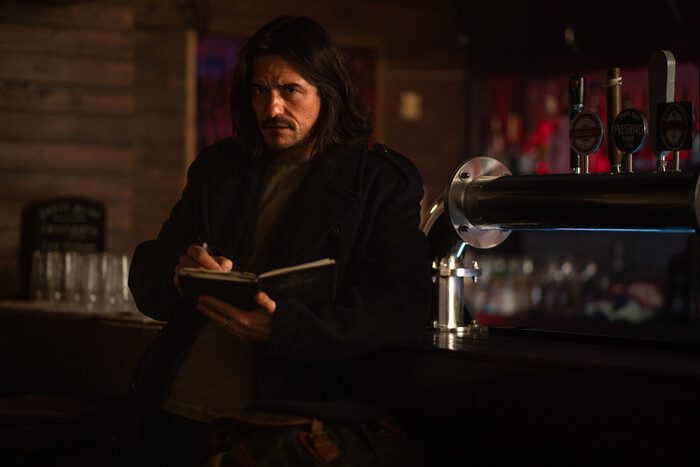How do you define the career of someone like Armand Assante? He’s been acting on screen for more than 50 years, with over 150 credits on his IMDb. He’s also spent four decades in the indie film world, working with new filmmakers and playing just about every kind of role there is to play. Lots of them have been gangsters — he won an Emmy for playing John Gotti in a 1996 TV movie — but none like the one he plays in the new indie Don Q (now available on demand).
In the dark comedy, he plays a resident of Little Italy who believes he’s a big-time mafioso but is just a deluded old man. When a vicious mob boss returns to the neighborhood, Don Q becomes embroiled in a very strange turf war. The movie is odd, clever and often very funny, and Assante is in rare form in the title role. He spoke to us from his home in upstate New York.
Insights: Lessons from Armand Assante
- Seek out diverse roles, including independent films, to build a varied and fulfilling career and be adaptable to avoid typecasting and show your range as an actor.
- Cultivate a disciplined approach to acting and a deep passion for the art of storytelling.
- Actively participate in the creative process to develop and enhance the characters you portray.
This is probably not the first time you’ve heard this, but because the first thing I ever saw you in was Private Benjamin, for years, I thought you were French, putting on an American accent.
(Laughs) Yeah, Warner Brothers asked the director the same thing. They said, “Where did you get the French guy?” (Laughs) I made it a point to do hard-nosed New York characters after that, ’cause nobody believed I was American. I had to get the studio to realize that I was an American, because I knew I’d be cast as every every pirate out there, but it was a long haul.
You seem to have done okay.
I’m so lucky to be still working.
How did you get started as an actor?
Both my parents were artists of sorts. My father was a painter and my mother was a musician, so I grew up with this kind of permission to express myself. I was in a rock band all through my teens. I went immediately into the American Academy of Dramatic Art, and from there, I made my Broadway debut under the direction of Joshua Logan, who was a legendary musical comedy director.
I worked with Imogene Coca, Arnold Stang and Richard Castellano on a comedy, Why I Went Crazy. I was in the theater for 10 years. For three of those years, I was doing television during the day, and theater at night. I did seven plays in the course of the three years that I was on daytime television, but predominantly, I was a journeyman actor.
One thing I had as a kid that I still have as an actor was discipline. I had the discipline to stay with it.
You’ve stayed with it for close to 60 years now, which is a lot more than most.
I don’t know whether it’s the brains or just the stubborn ignorance to believe that I could do it as a profession. Consequently, I’ve never done anything else. I don’t recommend it, but I’ve had an incredible journey as an actor.
I left LA and Hollywood way too soon. I could have had a bigger career, but honestly, I was not in love with that end of it. I was in love with intimate independent film storytelling. I was one of the first actors ever to work at the Sundance Institute which Robert Redford founded in 1983.
I made a lot of independent films, some that were good, some that won awards, some that were terrible, but that’s the bulk of my career. I’m still working in independent film, and storytelling is at the root of it. I always tell young actors, “If you don’t love stories, don’t do it, because that’s the core of your mission, to somehow make a story out of something.”
Do you think it’s that dedication to the craft and to working in independent film that has helped sustain you throughout such a long career?
Yeah. I mean, even in theater I did that. I did so many off-Broadway plays, working with writers all the time. I still do. I’ve worked with young people who were at nowhere, but I knew they were immensely gifted, and by believing in them, they did something with their lives.
It’s had a great effect on me. I’ve worked with everyone. I’ve worked with great people. I’ve worked with immensely gifted people. I’ve worked with people supremely ungifted. The point is that you have to love what you do.
That comes through in Don Q. Unlike a lot of indie films, it seems to know what it is. What drew you to it?
I wasn’t drawn to it. (Laughs) When they sent me the script I said, “Look, let’s meet and discuss it and have a meeting of the minds, because I don’t know if there’s a movie here.” We met many, many times here in my home throughout a long, long summer, and it evolved.
It’s the very same theme as Don Quixote in that he’s powerless. He feels vulnerable, he feels completely impotent in the face of these changes in society, at a time when he feels completely perplexed by what’s happening around him. He feels powerless, and he retreats into his fantasy, that “maybe I should become a mafia. I could have a crew and I could have a code that I’ll live by and I’ll whack all these skateboarders. I’ll whack all these criminals that are in the neighborhood. Everyone that’s corrupting this legacy place that I grew up in is going to die by my hand.”
To feel effective, you retreat into fantasy because fantasy people are who we need to right the wrongs and fight the evils and, as Man of La Mancha says, “Fight the unbearable odds.” (Laughs) This is the thing that I think Americans are very much afflicted with right now, and what I thought could be interesting for this film.
It felt like part of the character of Don Q was a kind of commentary on a lot of the work that you have done, playing gangsters and mafiosos. Was that something that you had in mind as you were making it?
No, not really. I would say it’s more a spin on the obsession people have with these characters, the same way he obsesses over Al Capone and Lucky Luciano. It’s not a satire, but if you will, a kind of presentation of how obsessed people have become with these otherworldly characters, even though they don’t know their history. There’s a lot of deep, deep mob history in America, very deep, dangerous history, but I think people have this kind of romanticized view of it.
After more than five decades in this business, what haven’t you done that you still want to do?
Honestly, I like what I’m doing now. I’d love to be involved with a studio or a network again, but, believe it or not, I find that a lot of characters that I’ve been brought on to do need a lot of work, and I love the creative process of working with directors and writers. It’s wonderful, and it’s been a real blessing in my life.
I’ve made many independent films, some of them won awards, some have been never seen before and some of them should never be seen. I’ve not seen probably about 30 of them, but I have made some that have been wonderful and were wonderful experiences. It changed my life. I’ve had the privilege of working all over the world with so many different types of directors and actors. It’s been an incredible journey.
Thinking about joining Casting Networks? Sign up for a free trial today!
You may also like:













